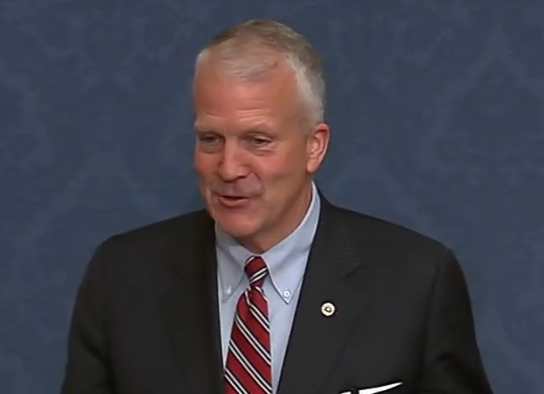Budget cuts that could cripple the Coast Guard’s mission in a rapidly changing Arctic and management of Alaska’s fisheries were the subject of a hearing today by the Senate Subcommittee on Oceans, Atmosphere, Fisheries, and the Coast Guard chaired by U.S. Sen. Mark Begich.
Witnesses at the hearing included Admiral Robert J. Papp, Commandant of the Coast Guard, and the acting administrator of the National Oceanic and Atmospheric Administration (NOAA), Kathy Sullivan.
Begich discussed the importance of marine shipping, the need for an Arctic deepwater port, the Coast Guard’s Arctic presence, and the NOAA’s fishery observer program.
A vocal advocate for the importance of increased icebreaking capability, Begich pressed Admiral Papp on expanding funding for icebreakers.
“The Russians have icebreakers and so do the Chinese – so it makes no sense that the U.S. shouldn’t have greater capability,” Begich said. “As an Arctic nation, we need to take our approach to our Arctic shores seriously and make sure we have the Coast Guard and icebreaking presence to protect both our economic and national security interests.”
In March, Begich held a field hearing in Alaska to address challenges in marine shipping, and has successfully fought the administration to prevent the Coast Guard from scrapping the heavy icebreaker Polar Sea. Begich also has advocated heavily for its sister ship, the Polar Star, to return to active duty.
Begich also expressed concern with NOAA’s recently expanded observer program for the groundfish fleet, especially the agency’s foot-dragging on allowing electronic video monitoring in lieu of live human observers. He told NOAA Administrator Sullivan that NOAA must “get on with the show,” and questioned her why a program that has been successfully demonstrated in Canada cannot be implemented in the U.S.
“It seems logical that we should be using electronic monitoring – the technology is impressive. But the habit of the federal government is to study things to death. After the failures of the NOAA observer program, the best study is to just get it out in the water. It would seem to me if we can put a rover on Mars, we can get this done,” Begich said.
In December, Begich joined the entire Alaska congressional delegation in voicing concerns to the Department . of Commerce about the expensive and poorly devised observer program.
Emphasizing the importance of oil and gas development in the Chukchi and Beaufort Seas, Begich stressed to Sullivan the need for a more thorough analysis following a draft Environmental Impact Statement (EIS) that would limit the number of wells which can be drilled in either body of water.
“With over 600 active leases in the Chukchi, these regulations still seem burdensome,” the senator said. “We need better communication with industry and a reasonable set of regulations to operate under as we expand responsible resource development in the Arctic.”
Begich also took the opportunity to call for better Coast Guard housing, improvements that would benefit the large presence in Kodiak. Begich was also successful in having Admiral Papp agree to meet with the Bering Straits Native Corporation to discuss the Port Clarence Land Transfer.








